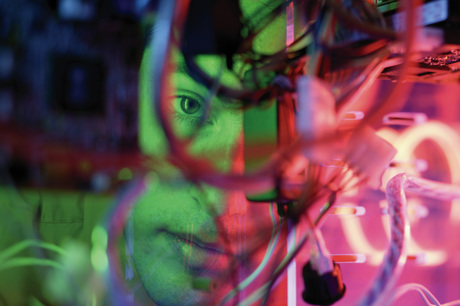NYC counterfeit cable case study
By Communications Cable and Connectivity Association
Thursday, 16 April, 2015

The widespread proliferation of counterfeit and non-compliant cable in the information and communications technologies (ICT) industry is illustrated in the Communications Cable and Connectivity Association’s (CCCA) latest case study of a New York City contractor’s encounter.
In this case study, the CCCA highlights the counterfeit problem, which is growing due to lack of awareness and the lure of lower prices, in order to inform and warn unsuspecting purchasers.
In the situation outlined in this case, counterfeiters used two out of those three most common counterfeiting tactics. First, the cable legend included an unauthorised counterfeit certification mark from a recognised testing agency, plus the cable was a type that is non-compliant for use as communications cable. The anti-counterfeit section of the CCCA website includes definitions of the three most common tactics.
When Mark Rewers, vice president of operations for BN Systems, Inc, a New York-based contractor, was informed by his customer that they had purchased some low-cost twisted-pair category cable they intended to provide for the project, he wasn’t immediately suspicious, as he assumed they had purchased the cable from an industry distributor. That soon changed when it was time to install the cable.
“Our crews showed up to do the prep work and realised that the cable the customer was supplying was not the well-known brand that had been specified for installation and warranty,” said Rewers.
“We examined the box and had never heard of the brand before. We couldn’t find any specifications or verification of the UL number. After a little more research, we realised that the cable was constructed with copper-clad aluminium [CCA] conductors, which is actually banned in New York City for use as communications cable.”
The CCA cable does not comply with the Australian telecommunications standards either and cannot be used as a customer cable.
Rewers informed his customer that the cable they had purchased did not meet code and that they would not receive a warranty. At first the customer was not swayed, convinced that the apparently authentic UL mark meant that the cable was listed.
“Our cable rep found several articles about copper-clad aluminium cable from the CCCA and another online article from a different source indicating that the brand in question was under investigation for UL fraud,” said Rewers.
“We provided the information to the customer, and once it reached higher level executives within the company, the customer decided not to use the cable they had purchased.
“They bought the non-compliant cable, couldn’t use it and couldn’t sell it. They ultimately lost $30,000. Thankfully, we ended up installing the originally specified cable from a reputable manufacturer - everything turned out well and the warranty is in place,” said Rewers.
“My word of warning to others is to not accept any substitute unless you are 100% sure it is UL listed. And I personally will no longer let my customers buy their own cable.”
The CCCA is a non-profit group of leading cabling manufacturers, distributors and material suppliers, whose anti-counterfeiting efforts include close collaboration with independent testing agencies, US Customs and law enforcement. For more information on the counterfeit issue, visit the CCCA website at www.cccassoc.org.
Thought Leaders 2025: Miroslav "Miki" Vuruna
Net zero, geopolitical risks and cybersecurity: Warren & Brown's Engineering and R&D...
Powering data centres in the age of AI
As data centres are increasingly relied upon to support power-hungry AI services and...
Smart cities, built from scratch
With their reliance on interconnected systems and sustainable technologies, smart cities present...




